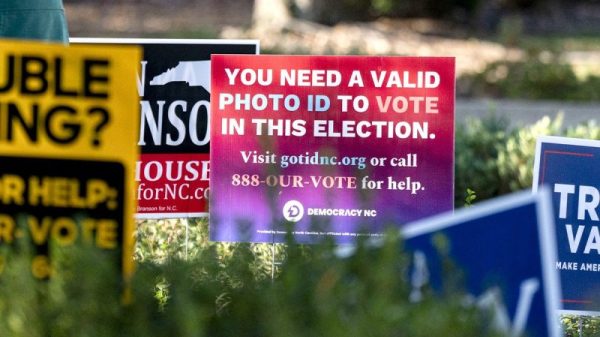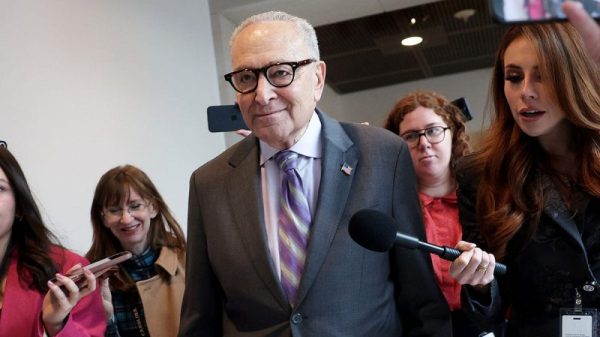In the heart of Prospect Heights, across the street from the Brooklyn Public Library, stands an eleven-story building with a sand-colored facade: the Union Temple of Brooklyn.
But it isn’t a synagogue, technically. The building that now stands at 17 Eastern Parkway is a community center that was built by two Jewish congregations, including the oldest one in Brooklyn. They had intended to build a grand, vaulted sanctuary, a classical temple, but to meet the needs of a growing immigrant community, pragmatically built the adjacent community house first. It was dedicated and opened its doors on the eve of the Jewish festival Sukkot: 17 October 1929.
One week later, four miles away, a great Wall Street sell-off crashed the stock market and the Great Depression began. The Union Temple, like dozens of others, was never built. The community center became the focus of life for the hundreds of German Jewish families clustered around it.
In 2023, the building houses two preschools. Weddings and special events are held in a banquet hall that seats 500. Private fitness centers cover three floors. The neighbors come and go under New York’s signature steel scaffolds. The less-hallowed of the public halls host comedy shows, string quartets, and live-audience podcast recordings. Synagogue services are still held in a theater on the lobby level of the Community House, which can accommodate 1200 people.
As attendance at these services has declined, the building owners continued to hold their doors open to the rapidly changing community. By 2022, the building hosted concerts, with large, cantilevered glass windows open to let in a breeze and music spill out onto the street (the building does not have air conditioning). The sanctuary hosted town-hall meetings and public lectures. Its three broad front doors open onto Prospect Park, the Brooklyn Central Library, and the Brooklyn Museum. The building had a natural place in a thriving neighborhood that had grown up around it, even as the area gentrified, and craft-brew, coffee-house hipsters replaced the devoted immigrant generations.
But New York City officials had a different idea about who should be allowed to voluntarily contract with the owners of the space. The city started issuing citations for improper use of the facility, which is designated as a place of prayer, intended for religious services, not secular, neighborhood, or civic events. The sensibilities of downtown Brooklyn had changed as the neighborhood gentrified. The Jewish families that had fed and funded the Temple spread out across other boroughs, and other congregations. Residential neighbors no longer welcomed the open windows, the sounds of worship and concerts and lectures that had made an immigrant neighborhood thrum with life.
Union Temple retained an architecture firm to convert the space into an up-to-code, modern, multi-use facility. To the congregation, it seemed the only economical use of this historic space was to once again become a place where the majority of the residents of the neighborhood could gather.
The process of converting a building that’s in active use by 2500 tenants every week is challenging enough. But this isn’t just any building. This building has compelling government interest. This building is a battle.
Union Temple is on the National Registry of Historic Places, under the purview of the New York City Department of City Planning. It was zoned for religious use for religious people who didn’t live there anymore, and couldn’t be used as an auditorium for the people who live there now. The leadership would need permits and inspection approval to add air conditioning, so they could close the windows and satisfy the noise regulations. The neighbors won’t be bothered and the space can be used more often and in the evenings. This provides a modest rental income that can help fund the conversion process.
Most of all, Union Temple and its architects needed to undertake the long, difficult process of petitioning the city to convert the space from exclusively religious zoning to a broader cultural use. To get approval for a secular auditorium in a residential area is not as easy. The process hardly existed when the place was conceived. They expected the approval to take up to a year. And then COVID came. The petition was rejected. They appealed. The process drags on.
“The zoning regulations are lagging behind the actual use of our buildings, making many of our buildings underutilized and uneconomical,” according to the project’s architect, Ritu Saheb.
At least this prime gathering space in the heart of Brooklyn doesn’t sit empty and gathering cobwebs — even if the city seems to prefer it did. In a neighborhood where auditoriums rent for up to $2000 a day, it would be irresponsible of the congregation to let the space go unused. To keep the law off its back, Union Temple must continue to file for a cultural use permit every three months to operate a performance space known as Murmrr. The cost of compliance, and the price of the permits, eats into the funds needed for conversion.
Cities thrive on change. People, and populations, move in, out, and around. We collaborate, cooperate, sometimes we incorporate. We congregate. We build beautiful spaces in which to greet each other, and perform for each other, and to hear one another’s ideas. Those spaces change. The people and events change. The needs of the community changes. We meet each other there, in the cities, and we solve each other’s problems, and sell each other goods, and celebrate and share in each other’s good fortune. The amount of red tape and regulation, fees and form-filling that government has wrapped around these simple interactions isn’t just irritating and expensive. On a deep level, it’s inhuman.
Union Temple and its architects seek to do exactly what the city of New York claims to want its people to do. The congregation has taken an underused building and given it a new life. A piece of the city’s rich history, where immigrant families walked and worshiped on Friday nights in 1929, has been revitalized. Now it’s a place the hip young people paying $3000 to rent a one-bedroom in Brooklyn like to go a Friday night in 2023. That’s a wonderful achievement.
It’s what New Yorkers want. It’s what cities are for. And bureaucrats do seem determined to make it as difficult as possible to get it done.





































